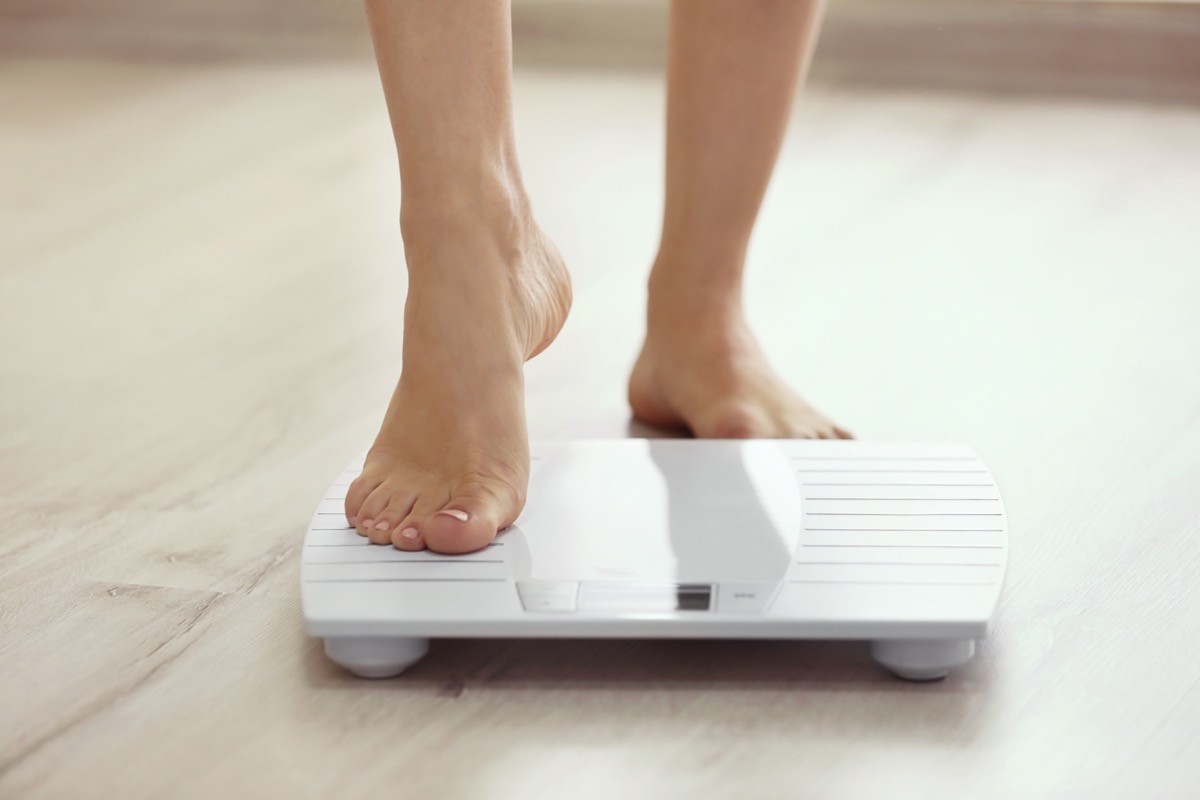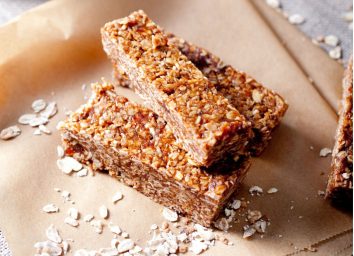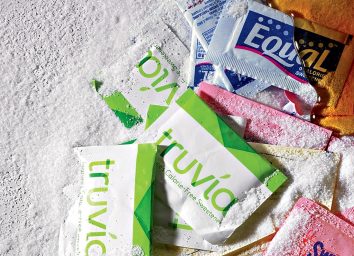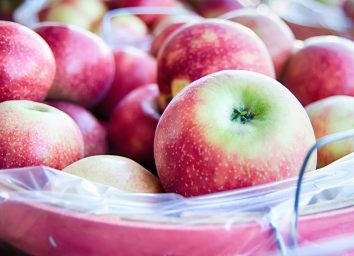The Secret Sign Your Weight Gain Is Not What You Think It Is

While the scale does tell you how much you weigh, it doesn't exactly tell you what the weight actually means. If you're up a few pounds, does that mean it's all fat? Is it muscle? Or are you just a little bloated? It can be hard to tell the differences if it's weight gain or bloating, which is why we did some digging to find out what your weight gain really means.
In order to do so, we spoke with Maggie Michalczyk, RDN and founder of OnceUponAPumpkinRD.com, to discuss the differences between weight gain and bloating, and she had a lot of advice to share. The secret sign? The look of your stomach.
Does your stomach look different? It's probably bloated!
When you're feeling normal as can be (not gassy and eating a balanced diet), give your stomach a good look. Keep that image clear in your mind, because it's going to help you determine when you're bloating or not.
"Bloating typically happens after a meal," says Michalczyk. "Notice how your stomach looks at that time [versus] how it usually looks to begin to determine if it's bloating or weight gain."
According to the University of Pittsburgh Medical Center, bloating will cause your stomach to wildly expand. Your stomach will feel kind of hard compared to your usual soft tummy, so give it a poke. If it feels different than normal, it's probably bloating.
What causes belly bloat?
In terms of what causes bloating, Michalczyk says it could be a myriad of things.
First, most women will experience some bloating and weight gain around the time they are menstruating.
"It's totally normal to be a couple of pounds heavier around your cycle, because we tend to retain water weight," says Michalczyk. "So if you are around that time of the month, that's a good indication that it's not weight gain but changes associated with your period instead."
Secondly, bloating can also be a result of what you are eating. And not just unhealthy foods (although those don't exactly help), but all kinds of foods—like cruciferous vegetables.
"If you find that after eating certain veggies you are always bloated (like cauliflower, broccoli, and Brussels sprouts) you may be more sensitive to these gas-forming veggies and probably want to limit the amount you have of them at a time," says Michalczyk. She also mentioned that sugar alcohols can easily be a culprit for bloating.
How to prevent bloating
If it's not your time of the month and you're experiencing an uncomfortable amount of bloating, it may be time to reconsider what you're putting on your plate.
"It might be helpful to keep a brief food diary where you write down what you ate and how you felt after (bloated, uncomfortable) to figure out the culprit of your bloating," says Michalczyk.
Every single body reacts to foods differently, so take some time to figure out yours. Write out what you're eating and how it makes you feel an hour or so afterward. If you're experiencing an uncomfortable amount of bloating, you should consider decreasing that specific food in your diet—especially if it's one of these foods that cause gut discomfort.
Another surprising way to decrease bloating is to simply stop eating and drinking at the same time. Michalczyk says this can actually cause bloating in the stomach.
"One thing that could help [decrease bloating] is not eating and drinking at the same time," says Michalczyk. "This can get a lot of air into your system, which can contribute to bloating."
So next time you enjoy a meal, enjoy your drink separately. Some nutritionists even say drinking a whole glass of water before enjoying your meal will not only help with feeling bloated later, but will keep you from overeating.
How to debloat
Feeling uncomfortable and need some relief? If you're looking to debloat, Michalczyk recommends incorporating more peppermint and ginger into your diet if you can, because they are great stomach shooters. An easy way to do so is to start a tea routine that includes one of these in the tea mix. You can also consider incorporating these 15 anti-bloating foods into your diet to decrease that bloat for good.
Want to understand more about nutrition? Sign up for our newsletter and receive tips in your inbox.







